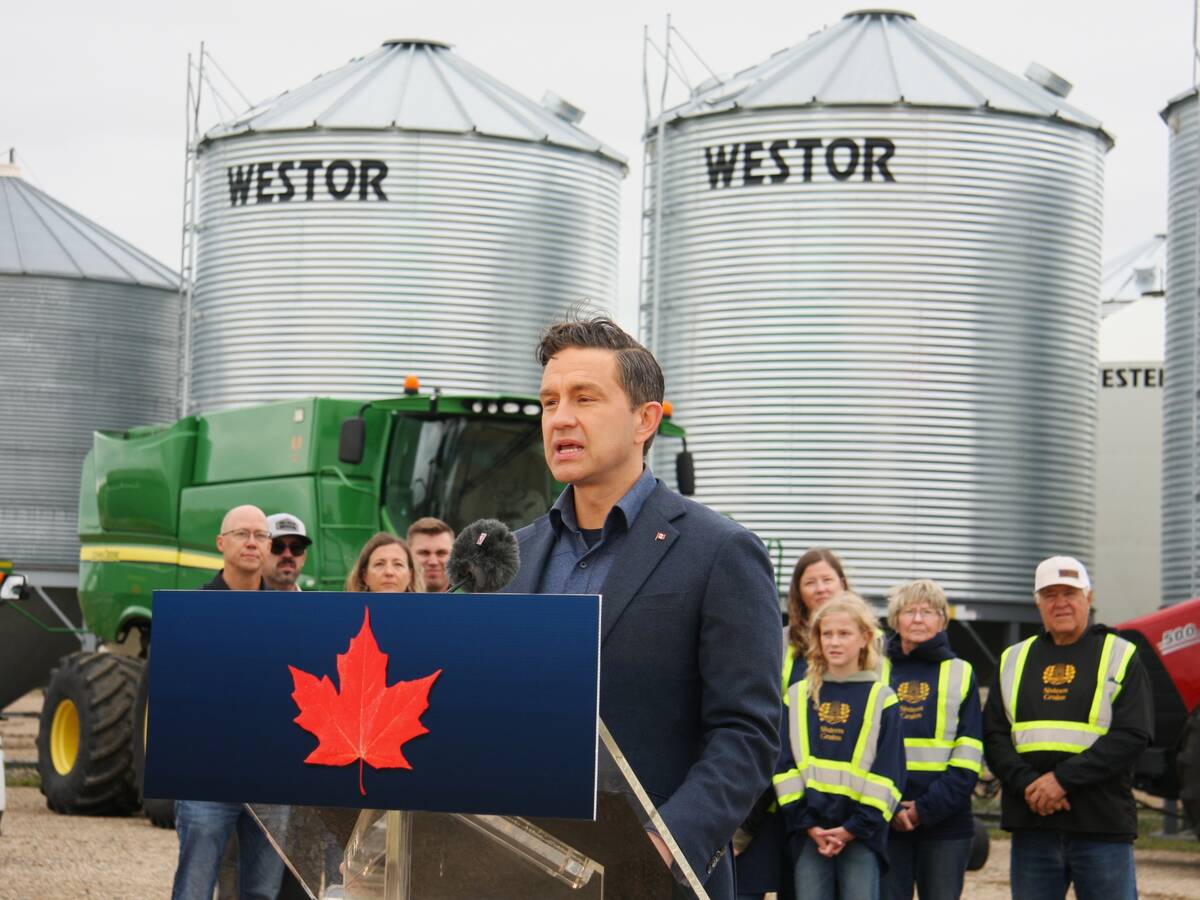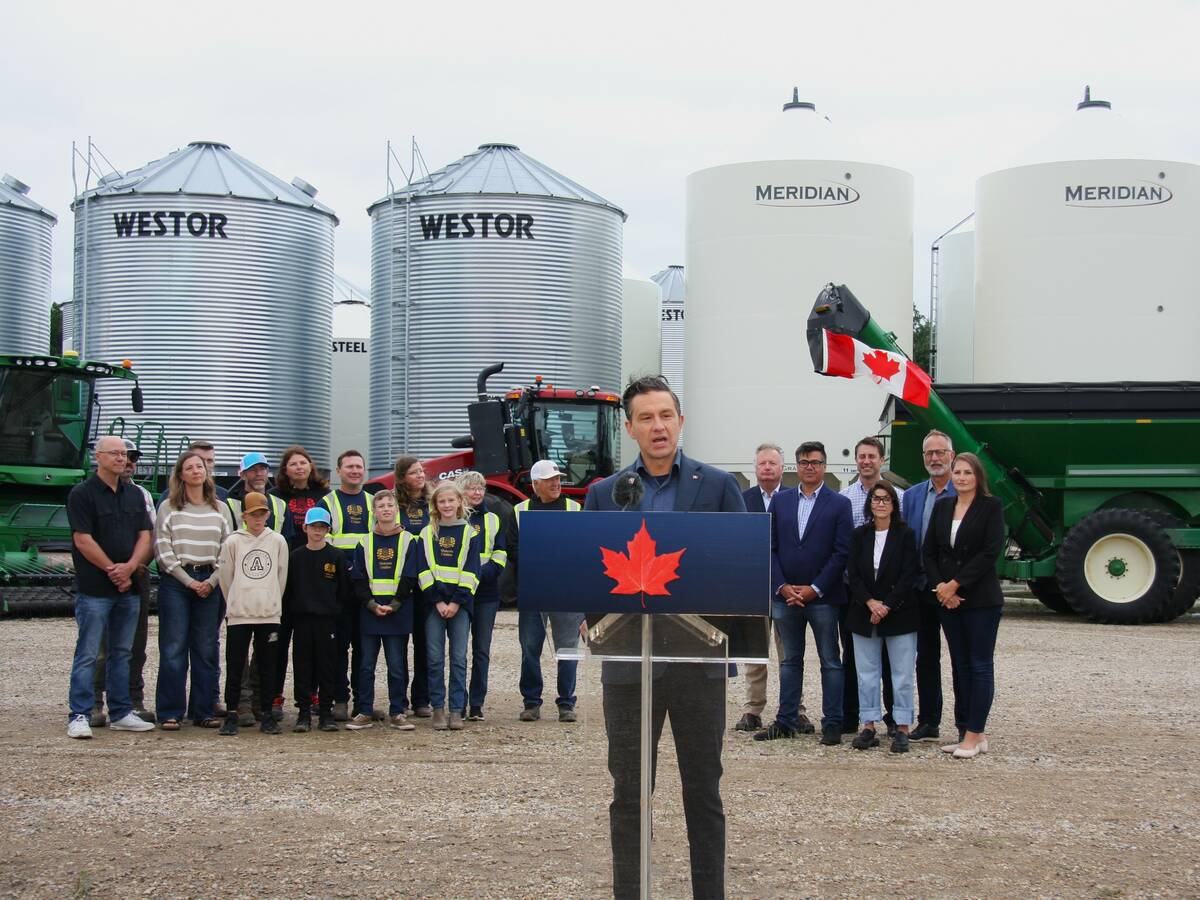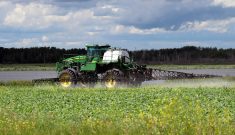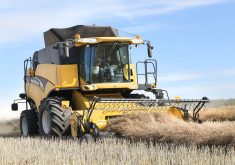Conservative party leader Pierre Poilievre made a trip to Saskatchewan yesterday to speak about the electric vehicle mandates and canola tariffs, saying the new canola tariff is “another unfair attack on our western producers.”
The anti-dumping tariff is the most recent addition to the retaliatory measures China has been taking following the Canadian EV tariffs against China.
Standing in the bin yard of the Sixteen Grains farm just outside of Saskatoon, Poilievre said the Liberal government is inadequately addressing the current trade situation by not standing up for Canadian farmers.
Read Also

Manitoba Parkland research station grapples with dry year
Drought conditions in northwestern Manitoba have forced researchers at the Parkland Crop Diversification Foundation to terminate some projects and reseed others.
He said funds collected from the EV tariff should be used to provide compensation to Canadian canola producers, and also called for a halt of the loan the federal government provided to British Columbia Ferries to purchase new vessels from China.

“I think we should look at ways we can penalize the regime in Beijing for targeting our farmers,” Poilievre said.
“And so far, Mark Carney has said nothing about the canola producers.”
The Conservative leader also made promises for action against the banning of gasoline-powered vehicles that is to be phased in starting Jan. 1, 2026.
The first phase includes a requirement that 20 per cent of dealership sales will be EVs, and any car sold above that quota will pay a $20,000 tax. Poilievre added that the phasing in would cost $300 billion for infrastructure and result in thousands of dollars in higher taxes.

“It (the ban) will kill jobs, balloon costs and grind rural communities to a halt,” he said.
“Farmers, ranchers, resource workers would not be able to do their jobs because EVs don’t work over long distances and in cold weather. It would literally erase many small towns from the map.”
He equated the ban of gas vehicles with a ban on the way of rural life across Canada, calling it an “utter disaster” that would cripple the Prairies.
The Conservative party is planning to introduce motions in Parliament, launch pressure campaigns in Liberal MP ridings, hold press conferences and events at Canadian car dealerships, organize petitions and other activities.


















